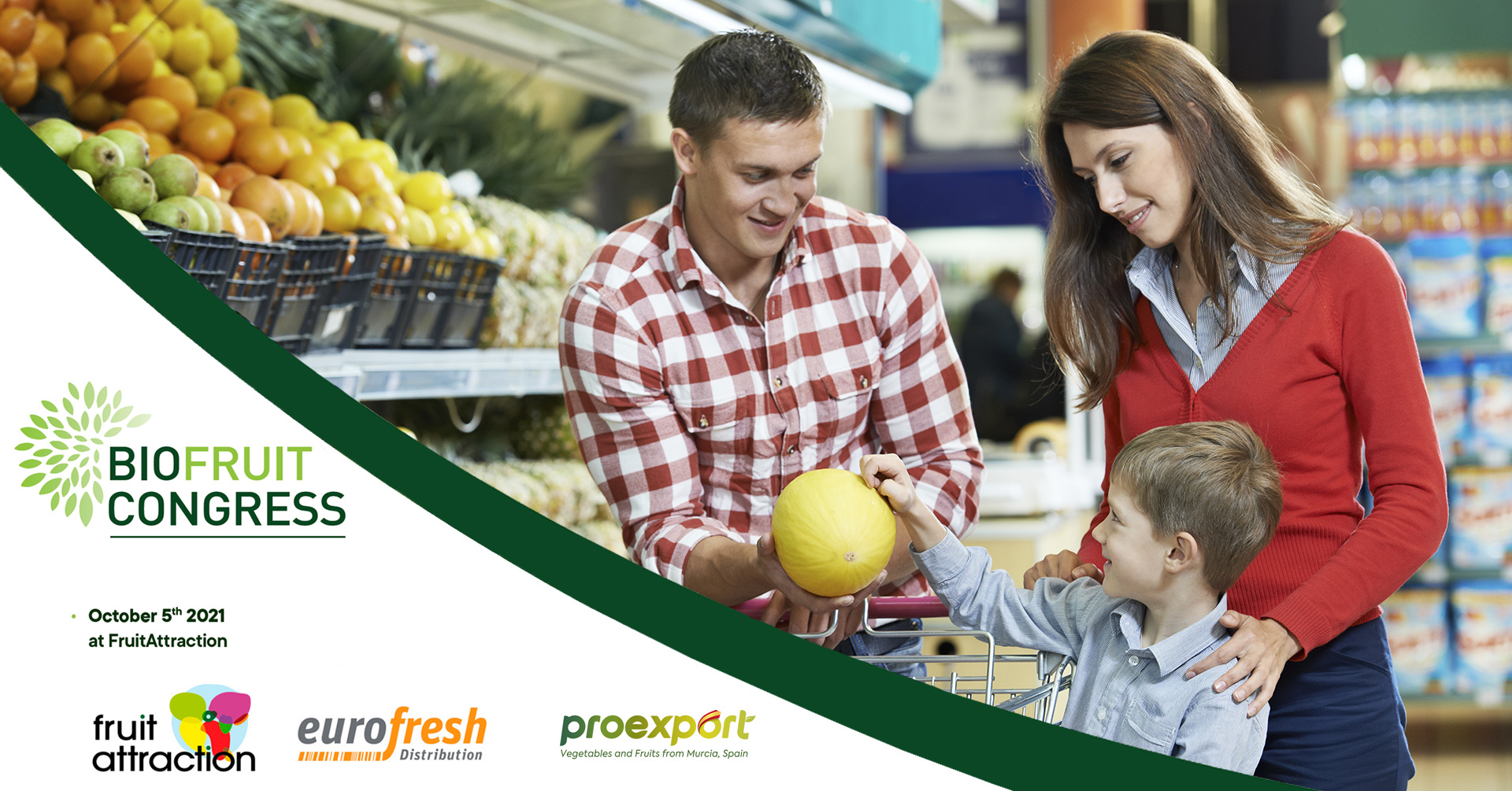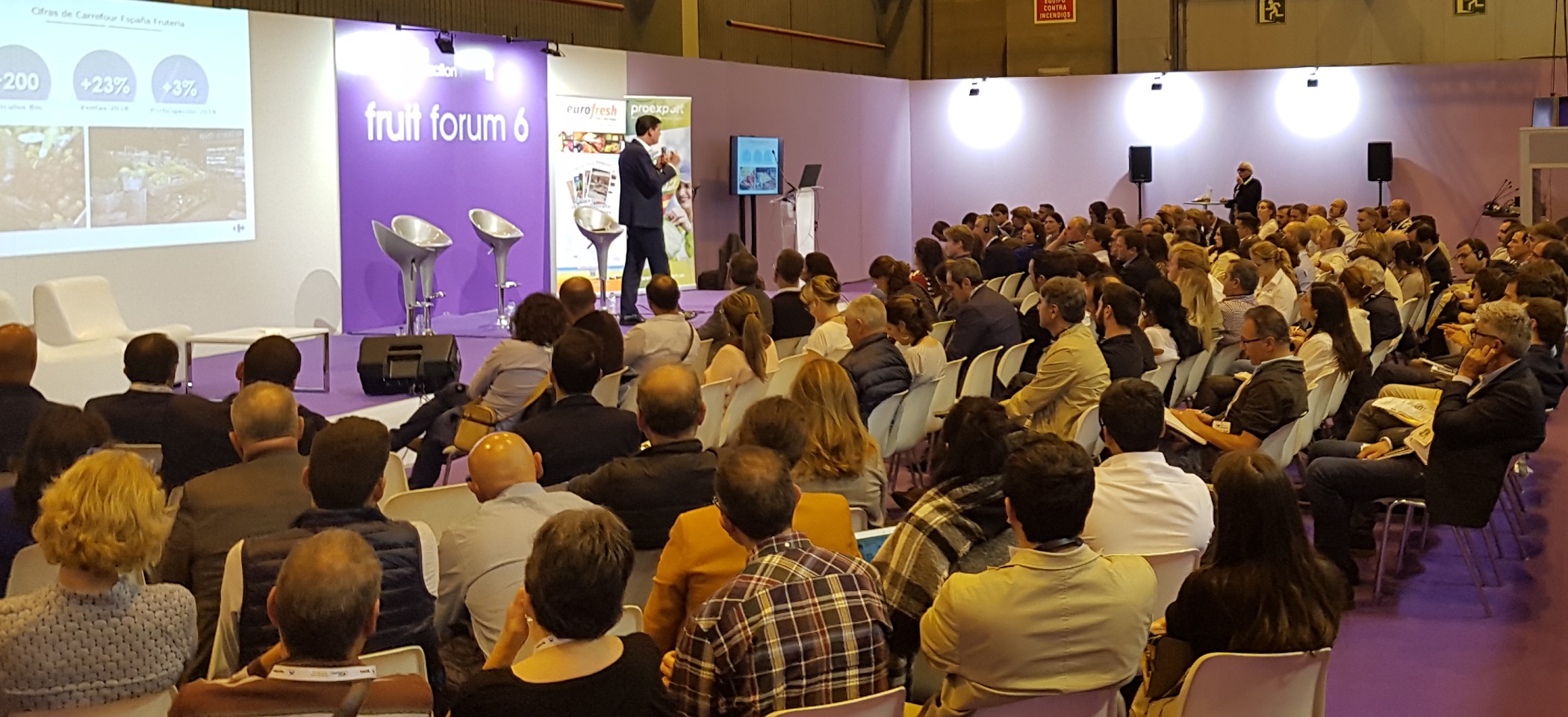Eurofresh and Proexport co-organise Spain’s largest organic produce forum
The IV Edition of Biofruit Congress (https://www.biofruitcongress.com/), Europe’s most important forum for analysis and debate of organic produce in Europe, will take place on October 5 at Fruit Attraction (Ifema, Madrid) in face-to-face and online format. “Some 400 professionals from the sector will discuss the advances in organic production, the trends and how to add more value for the consumer and society,” said director of Proexport, Fernando P. Gómez Molina.
The event will once again be co-organised by the Murcian association of fruit and vegetable producers, Proexport, Eurofresh Distribution magazine and the international Fruit Attraction fair. “In this edition, we will address together with industry leaders the trends in the consumption and distribution of fresh organic products in Spain and Europe, the implications for production of the new European regulation and the social commitment that farmers and companies are developing with their sustainability initiatives,” said Gómez.
In a round table, the technical director of Proexport, Abelardo Hernández, will share with attendees the agro-sustainable initiatives that companies from Murcia, Alicante and Almería carry out on their farms, in a way that is respectful with the environment and in line with society’s environmental demands. He will be accompanied by FairTrade International, an organisation that coordinates the certification of FairTrade products.
Biofruit Congress will also feature a presentation on the application of the new EU organic product regulation by Denis de Froidmont, delegate of the BIO unit of the European Commission. The section on consumer trends in organic products will be addressed by Kantar WorldPanel food expert Rikesh Panchmatia. Finally, David Monteiro, director of fruits and vegetables of the leading Portuguese supermarket chain Sonae MC, will offer his vision for promoting and managing demand for organic products in the international market.
Referring to the potential in Spain, Gomez said: “We are still at €50 per person of annual organic consumption, only 2.2% of the total, but we are following an upward trend. However, in organic production, we already represent 10% of the national agricultural area, but this is still far from the 25% proposed by the European Union for 2030. In our opinion, it is essential to reach this figure so the rise in real demand among Spanish and European consumers is in line with the expected growth in organic supply, otherwise, no matter how favourable current opinion is among the media and governments, producing with this mode of production could leave many farmers and companies at serious economic risk, which we all must all avoid.”
Spain is the European leader in terms of organic agricultural area, with 2.1 million hectares, and the fifth worldwide. Fresh fruits represent 15.5% of the most consumed organic products, followed by fresh vegetables (13.9%).
The Region of Murcia has more than 88,846 hectares certified in organic farming, of which 5.4% correspond to vegetables and 4.4% to citrus.
As Proexport highlights, the main organic products are courgette (12,005 tons) and peppers (25,605 tons), both of which are produced under greenhouse and located mainly in the Campo de Cartagena.
“The environmental and social commitment of our farmers and agricultural companies is well known, but it is necessary for everyone to assimilate this value,” said Gómez.





